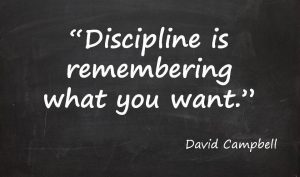
04 Nov We want to be part of your Sales Talent Acquisition success story
How to Hire Top Sales Talent in 5 steps.
- What is your I.S.P.? (Your ideal salesperson)
 Do you have one, or will you just spit out what you think you want?
Do you have one, or will you just spit out what you think you want?
Do you have it written out? Have you reviewed it?
What are the titles they are going to call on? C-Suite, buyers, management supervisors, etc…
What type of companies? Are they Institutions, corporations, or consumers?
What is your sales cycle? Is it a long sales cycle? Short sales cycles are three months to six months.
What Kind of products are you selling a high-priced, mid-tier? Are they low prices? Is it transactional?
What is the size of the average deal?
Are your products or services custom-engineered? Are they commodities, products you can demonstrate?
Do you need a hunter, a farmer, an account manager, the closer or consultative seller?
Must they hunt, or are they provided leads?
Is this a 1 call, 2 call, or multiple calls close?
- Write the Ad. Use your ideal salesperson profile to write your ad. Create an ad that identifies precisely the type of person you want.
So when a salesperson reads the ad, they say to themselves, “that’s me, I can do that job,” “I sell to these people,” “I’m selling to this industry,” or “that’s who I’m calling on.”
You want people to read your ad and say that’s me. Most ads start off with “Expanding company looking for a highly motivated, hard-working….” Well, no joke, really? Who wants a lazy non-team player who is not going to make the calls. Other ads start off with “We have an excellent company, great team culture, and a super fun work atmosphere. Really? That’s great. Are you selling a top sales producer in your company?
Great salespeople are different. They should be selling you on why they should work for you and how they’re going to produce. Think of them as athletes. The difference is their past performance does not predict future performance. So, why are you selling them at your company?
You can have the most fabulous company in the world. When they come to your company, and they can’t produce, or they don’t sell, are you going to keep them? Because that’s how great a company you are. I’m going to give you the reason why your company is excellent, your culture is great, and you have people that love going to work. It’s because most of them are going to be in sales.
Now granted, if they could produce, they sell your product, and you have a unique culture, that’s fantastic. They’re still going to leave in 2 to 4 years. Someone’s going to take them.
So, write the ad directed to the person you want. This is what you’re going to do, who are you going to call on? This is the sales cycle.
Here’s your target. If you can handle that apply. Read the book “The Who.”
“A” Players want to be told what you expect from them and by when you want it done. If they say yes, fine, If they say no, then they’re not an “A” player.
- Do a phone interview, five minutes to seven minutes tops.
Let the candidates know you have many phone interviews, and this will be a quick 5 minutes.
Ask questions such as, what did you read in the ad that interested you? Why do you think you are qualified for this position? Then, state the reason why people have failed in this position and give four or five things why people have not been successful.
Now ask, why won’t you fail at this position? Listen to how they answer.
Next, then state why salespeople in this role are successful and provide 3 to 4 items.
Then quickly say you have to end the call because you have your next interview and let them know that if they are selected to move to the next round that you will call them.
You want to see if they’re going to ask you another question to keep you on the phone before the call ends.
This demonstrates their ability to stay on the phone when prospecting. Remember, top salespeople never end the call first, especially when prospecting.
For the ones that pass, let them know you want to set up an interview. Tell them that this is going to be an audition. Do not bring in anything proprietary, but if you can, demonstrate a sample Pipeline and demonstrate your sales process. Again, this is an audition, so you need to act like we are a prospect. Treat us as you’re coming in and prospecting us for the first time.
- The 1st Audition Interview
When the candidate arrives, have someone other than you and the other person you will be conducting the interview with to bring them to the office or conference room for the interview.
You should always have two people interviewing. When you walk in, you’re not walking in with open arms. Don’t greet them with “Hey, how are you doing? Thanks for coming in today”. Really? I have never had a new prospect in the 30 plus years of my career greet in this fashion. This just is not going to happen.
So don’t do it to the prospective sales candidate. Do not extend your hand. You want to observe if they reach their hand out. If they do, then you shake their hand. The objective is to watch if they can build rapport right away with you and the other interviewer. This is how they’re going to behave in front of a brand new prospect.
 Doesn’t it make sense that you see this now before they are on your team?
Doesn’t it make sense that you see this now before they are on your team?
- Read their resume before the interview. You have to know how to read a resume. 67% of people who embellish their resumes pretty much lie.
So, how do you read a resume? This is not as easy as you think. Unless you are trained like I am going to show you. There are an art and a science to it.
What do you want to check? Go through their tenure with past employers.
Don’t worry about them changing jobs. This is going to happen, but are they leaving companies at the same time of the year? Is there a pattern? Well, that may mean either they’re waiting for their bonuses to go or they’re moving on at the same time. They’re not hitting their numbers they need for the quarter, particularly at the end of the year.
- Look for sales activities. If there’s too much administrative work or organizing and planning. Then you need to question why there is a lot of administrative work there and ask them to please explain.
If the resume says that they were in the top 10%. Of how many people? Grew the company by three million dollars. What was the average sale? You want to see if it was 1 or 2 big deals? Was it multiple transactions? How much was a new business, and how much was to existing clients?
You want to repeat this process for each company listed on their resume.
What is your sales process? What training did you have? How often were you looking at your pipeline? If you are needed to sell x amount per month, what does your pipeline need to look like?
The challenge with H.R. reviewing resumes first is a problem. They’re more concerned about how someone spelled something or phrased something. Look, you should not care if they can spell, you should care if they can sell. If you hire them, then you can have someone to proofread their writing.
If the person can produce and they can put up the numbers, that’s all you care about.
There are more questions and examples you can listen to in some of the videocasts on my YouTube channel. You should have a checklist and have the 2nd interviewer be the observer to document using a scoring system.
They should observe how they’re handling your question, and how they’re behaving. Is the candidate looking you in the eye? The last thing you want to worry about on a resume is that they misspelled something. That’s why you have to be careful with human resources weeding out people for a sales position because they’re too compliant.
What did they score on their presentation? Where they able to connect? Where they would build rapport, did they seem to get apprehensive?
Document putting a number in each category. When interviewing several people, most times you’re going to remember the first and the last person or someone that impressed you by how they looked or they dressed. With a scoring system, keep the process objective. So, there is no confusion. What did you score? You can go back and start isolating the top scorers, then you can decide who would be a better fit for your company, but it’s on a scoring system. Also, you will have a “top 3” because not all number ones accept your offer.
Note that having a debate amongst the team regarding the top scorers is right for your company. You want people debating who is the better candidate that will produce. Once the person is selected, all should be on the same page with the selection.
- For the final interview, obviously, you have to check the references. Do your standard compliance stuff. That’s where H.R. comes in.
If they passed this process and made it to this point, this is when you sell them on your company. The unique culture, team environment, the support they will receive. That’s why the Entrepreneur, C.E.O., or an executive should spend 5 minutes explaining the vision for the company and where it’s heading.
You want them excited to start working with your company and jumping right out of the gate. New hires’ excitement and energy are the highest in their first 30 days. Imagine with this process, having the top person motivating them during the final interview.
* Keynote pre-employment assessments are a best practice. I highly recommend them, and this will reduce reviewing tons of resumes by 80% or more.
That’s the 5 steps to hiring top salespeople.
Now you need a well-designed 90-day ramp-up plan. For more information, go to VictorArocho.com



No Comments